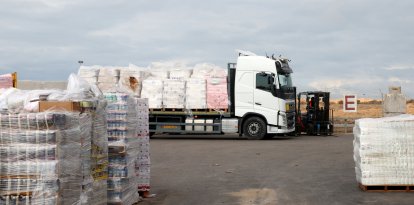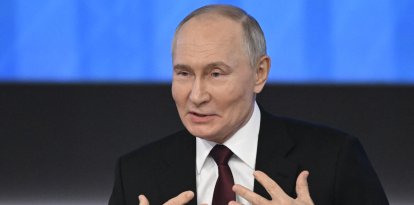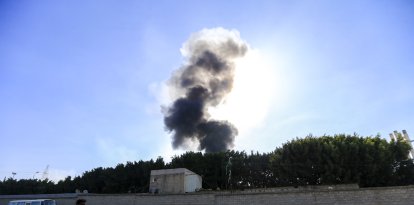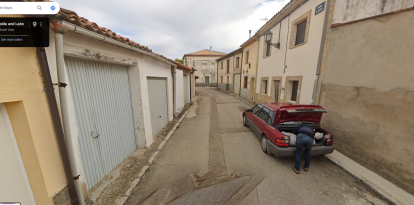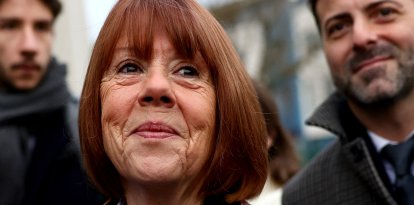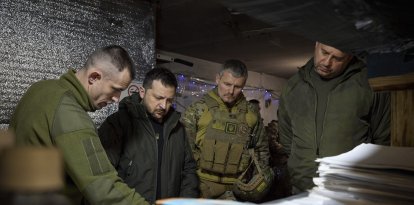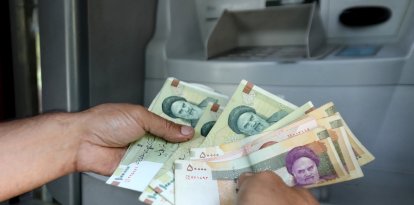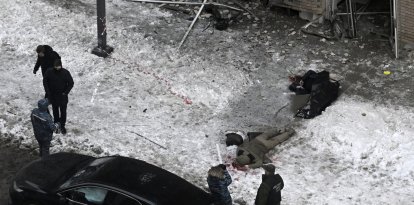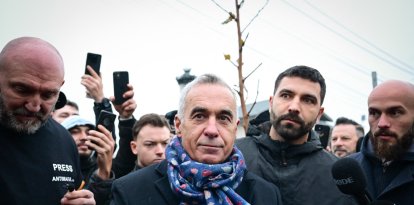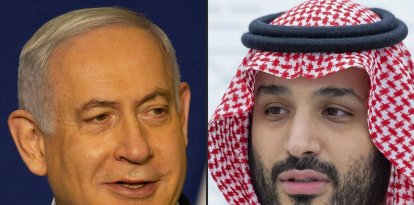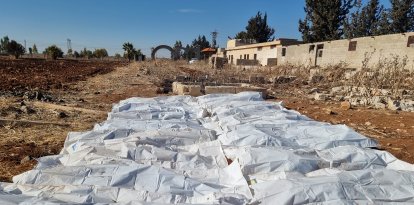One week before the "elections", Venezuela cries out for freedom while Chavismo becomes more dangerous than ever
Polls predict a resounding triumph for the opposition, but that would be the case if these were elections. From the tone, what is on the horizon looks more like a train wreck.
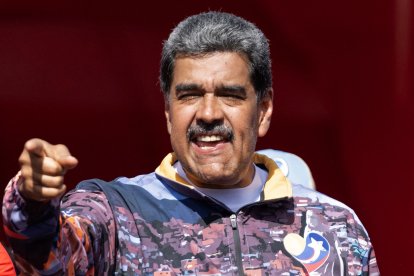
Nicolas Maduro speaks at a rally in Caracas on July 18. (Juan BARRETO / AFP)
There is one week to go before the expected presidential elections in Venezuela, and uncertainty is growing and tensions are mounting. It is uncertain what will happen, because it is not about votes. In all opinion polls, the opposition, in the face of its candidate Edmundo Gonzalez Urrutia, leads by up to 40 points. No respectable poll gives the dictator Nicolás Maduro the slightest chance.
But it is not about votes. This has been continuously said by opposition leader María Corina Machado, who although she could not register in these elections as a candidate due to the arbitrariness of the regime, is the central and decisive figure. In fact, the diplomat González Urrutia, who until recently was an unknown, stands out in the polls thanks to the impressive fervor around Machado.
"We are going to win and we are going to cash in," Maria Corina Machado said last week at a rally. "That day is going to be long. I ask Venezuelans to get ready for a long day. Take care of the votes," she said.
The opposition has already suffered frauds by the regime in the past. The most dramatic were that of Henrique Capriles' first election against Nicolás Maduro, in 2013, after the death of Chávez; and that of 2018, when Maduro was reelected in a process that was condemned by almost the entire international community.
Although participating in elections implies a risk, this time the opposition sees the process as an opportunity to build a movement to rescue Venezuela from the abyss. Professor Corina Yoris, whose profile gained prominence in the last weeks due to the fact that she was Machado's first standard bearer as candidate (and who was not allowed by the regime to participate either), told Voz that what is brewing in Venezuela is a "national movement of emancipation.”
Beyond the polls, the people have also spoken. "I have gone to march every time the opposition calls. Always. I have never missed a march against Chavismo in my life, in these 25 years. And what I am going to tell you I stand by: I have never seen anything like what is happening in the streets today. I have never seen so many people, so excited, with so much conviction, as the one in the streets today,” he told Soraya Pérez to Voz, who attended María Corina Machado's caravan in the state of Táchira.
"People are coming out because they have lost their fear. And it is no longer only the middle class that comes out. Everyone is coming out. Everyone is also aware that Maduro is committing fraud. But nobody wants a fraud here anymore,” said Perez.
There are rivers of people and their fear is gone. For example, Chavismo has attacked all commercial businesses that cater to Machado or her candidate, Edmundo Gonzalez. It has closed restaurants or small businesses, has closed hotels, seized vehicles or raided properties where Machado has stayed. "But we go on!" the Hernandezes, humble sisters from a small town in the Venezuelan plains whose empanada business was shut down by the regime, recently told Voz Media.
To the media Efecto Cocuyo, the person who recently hosted Machado in the state of Portuguesa told her that, although she knows that Chavismo could attempt to go against her for having done so, she does not regret it and would do it a thousand times more.
The regime is aware that the movement in the streets looks unstoppable. That there is no poll that favors it and that this time is the first time that the opposition goes to an electoral process knowing that it may be a robbery, but with the will to fight that robbery. In this sense, the regime is getting ready. It has oiled the repressive machinery, with which in the last weeks it has kidnapped or made more than 100 people close to Machado disappear and with which it accumulates more than 300 political prisoners.
Maduro, for his part, has begun a dangerous rhetoric. This week he told a squalid political rally that, should the opposition win, "a civil war would be unleashed in Venezuela. There would be an armed revolution.”
He repeated it again in another rally: "If you do not want Venezuela to fall into a bloodbath, into a fratricidal civil war, a product of the fascists, let us guarantee the greatest success, the greatest victory in electoral history.”
Jorge Rodriguez, president of the Chavista National Assembly and one of the most powerful men of the regime, gave a press conference this July 19 attacking the opposition, saying that conflict is inevitable and that Chavismo is preparing to take to the streets on Sunday, July 28 to "safeguard the victory."
Machado has also been trying to intimidate her. Just this week the head of security of the opposition leader was kidnapped (later released), and she was the victim of an attack when the van she was traveling in was sabotaged, with the brakes tampered with by chavismo sympathizers.
What is looming is a train wreck. Although Machado has said time and again that she is willing to establish the conditions for an agreed transition, Chavismo has shown no signs of giving in. According to a report by El País, while there is a more moderate part of the regime that is willing to hand over power, there is another that, for now, takes the position that they prefer to die holding on. If the second one prevails, conflict is likely to be unavoidable.













